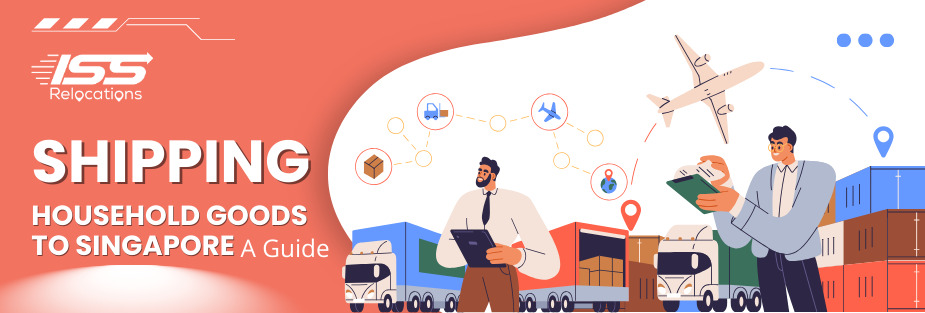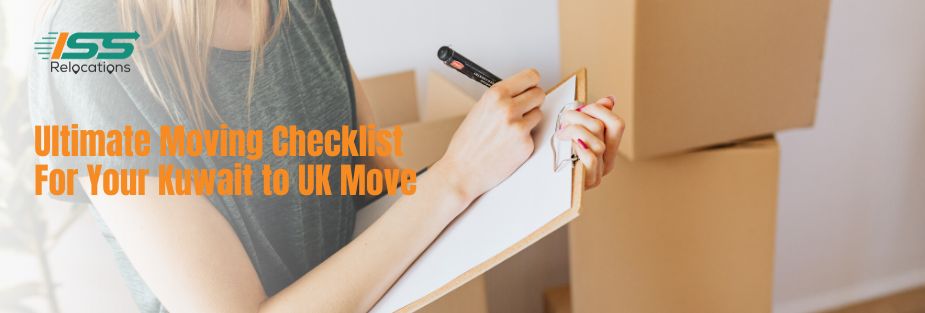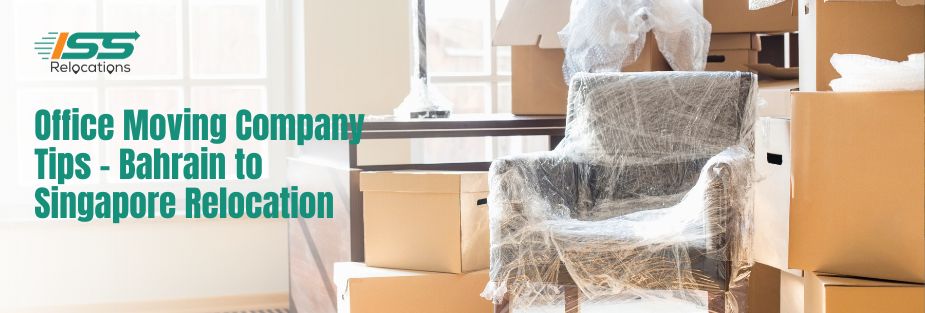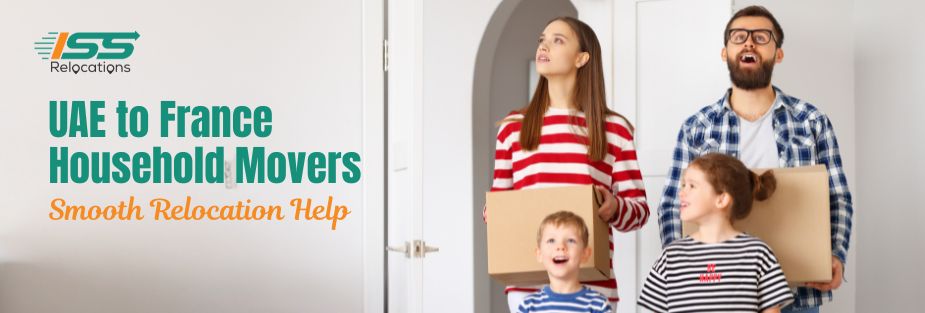
Moving Household Goods to Singapore – A Guide
Moving household goods to Singapore requires meticulous planning and an understanding of various regulations. Singapore’s stringent customs regulations necessitate thorough preparation to ensure a hassle-free move. Engaging professional relocation services can significantly ease this process. Companies like ISS Relocations provide comprehensive assistance, from packing to customs clearance, ensuring your belongings arrive safely and on time. This guide will navigate you through the essential steps and considerations for moving household goods to Singapore, making your transition as smooth and efficient as possible.
Moving Household Goods to Singapore – Preparing for the Move
Early planning is crucial when moving household goods to Singapore. Start by creating a detailed inventory of your belongings, categorizing items to determine what to keep, sell, or donate. Decluttering reduces the volume of items to move, saving time and costs. Use high-quality packing materials to protect fragile items during transit. Label boxes clearly with contents and destination rooms to streamline the unpacking process.
Documentation is another critical aspect. Ensure you have all necessary paperwork for customs clearance, including a detailed inventory list, purchase receipts, and any required permits. Preparing these documents in advance will prevent delays and complications at customs.
Choosing the Right Relocation Service
Selecting a reliable relocation company is vital for a smooth move. Look for companies with extensive experience in international relocations and positive customer reviews. ISS Relocations stands out due to its comprehensive services and customer-centric approach. When moving household goods to Singapore, ISS Relocations offers tailored solutions including packing, shipping, and customs assistance, ensuring every detail is handled professionally.
ISS Relocations provides end-to-end services, from initial consultation to final delivery. Their team of experts assists with every step, offering valuable advice and support. Client testimonials highlight their efficiency and dedication, making them a trusted partner for your relocation needs.
Understanding Singapore’s Customs Regulations
Navigating Singapore’s customs regulations is crucial when moving household goods to Singapore. The country has strict import regulations to protect its borders and economy. Familiarize yourself with the list of restricted and prohibited items to avoid penalties and delays. Common restricted items include firearms, controlled drugs, and certain publications. Prohibited items, such as chewing gum and certain weapons, are not allowed under any circumstances.
Customs duties and taxes vary depending on the value and nature of your goods. Personal effects and used household items are generally exempt from duties if they meet specific criteria. To ensure compliance, prepare a detailed inventory with accurate valuations. ISS Relocations can assist with customs documentation and procedures, helping you navigate these regulations smoothly.
By understanding and adhering to these customs regulations, you can ensure a seamless transition and avoid any legal or logistical issues during your move to Singapore.
Shipping Options and Logistics
When moving household goods to Singapore, understanding your shipping options is essential. There are three main shipping methods: air, sea, and land. Each method has its advantages and drawbacks, and choosing the right one depends on your specific needs and budget.
Air Freight: Air freight is the fastest but most expensive option. It is ideal for urgent shipments and valuable items that require careful handling. The transit time is significantly shorter compared to sea or land freight, usually taking a few days. However, the cost can be prohibitive for larger shipments.
Sea Freight: Sea freight is the most common method for moving household goods to Singapore due to its cost-effectiveness. While it takes longer, typically a few weeks, it is suitable for larger shipments and bulky items. Containers are used to transport goods, providing protection during transit. It’s important to plan ahead to accommodate the longer transit time.
Land Freight: Land freight is less common when moving household goods to Singapore, primarily because Singapore is an island nation. This method is more relevant for regional moves within neighboring countries.
Cost Considerations: Budget planning is crucial when choosing a shipping method. Air freight, while faster, is more expensive, whereas sea freight offers a balance between cost and transit time. Additional costs to consider include packing materials, insurance, and any potential customs duties. ISS Relocations can provide detailed cost estimates and help you choose the best shipping method based on your needs.
Logistics Expertise: ISS Relocations boasts extensive logistics expertise and a global network, ensuring efficient and secure transport of your household goods. Their team handles all logistical aspects, from packing and shipping to customs clearance, providing peace of mind throughout the relocation process.
Plan Your Singapore Move Today!
Begin Your Stress-Free Relocation Journey Today – Request A Quote Now!
Settling into Your New Home
After moving household goods to Singapore, the next step is settling into your new home. Proper unpacking and organization can help you quickly adapt to your new environment.
Unpacking Tips:
Begin by unpacking essential items first, such as kitchenware, bedding, and toiletries. This approach allows you to maintain basic daily routines while gradually organizing the rest of your belongings. Take your time to arrange your new home in a way that suits your lifestyle and preferences.
Acclimating to Local Culture:
Adapting to the local culture is a vital part of the relocation process. Singapore is a multicultural city with a rich blend of traditions and customs. Learning about local etiquette and cultural norms can enhance your experience and help you integrate smoothly into the community.
Finding Essential Services:
Locate essential services such as healthcare, schools, and grocery stores early on. Singapore offers a wide range of amenities, and having a list of nearby services can make the transition easier. Utilize online resources and community groups to gather recommendations and reviews.
Support Services from ISS Relocations:
ISS Relocations offers comprehensive post-move support to help you settle in. Their services include assistance with finding local amenities, setting up utilities, and providing information about your new neighborhood. This ongoing support ensures a seamless transition and helps you feel at home in Singapore.
Wrapping Up
Moving household goods to Singapore requires careful planning and execution. By understanding customs regulations, choosing the right shipping method, and settling in effectively, you can ensure a smooth relocation. Partnering with a reliable relocation service like ISS Relocations provides the expertise and support needed for a successful move. Contact ISS Relocations today to make your transition to Singapore as seamless as possible.
Plan Stress-free Move with Top Moving Company in UAE - ISS Relocations

Frequently Asked Questions
What documents are needed for customs clearance in Singapore?
You will need a detailed inventory list, purchase receipts, and any required permits for customs clearance when moving household goods to Singapore.
How long does it take to ship household goods to Singapore?
Shipping times vary depending on the method. Air freight takes a few days, while sea freight can take several weeks.
What are the costs associated with moving to Singapore?
Costs include shipping fees, packing materials, insurance, and potential customs duties. Air freight is more expensive than sea freight.
Can ISS Relocations help with finding housing in Singapore?
Yes, ISS Relocations offers assistance with finding housing and provides support services to help you settle in.
What is required to move to Singapore?
To move to Singapore, you’ll need a valid visa, customs clearance for household goods, and housing arrangements. ISS Relocations manages every step of moving household goods to Singapore, ensuring a smooth and stress-free experience.
How many boxes do I need to move to Singapore?
The number of boxes depends on your household size and inventory. ISS Relocations provides a detailed assessment to determine your packing needs, ensuring efficient and secure moving of household goods to Singapore.
Moving Company - Recent Blog
Stay informed and prepared for your next move with our latest blogs on moving services in the UAE. From expert packing tips to international relocation guides, ISS Relocations brings you up-to-date insights to make your moving experience smoother, safer, and stress-free.










